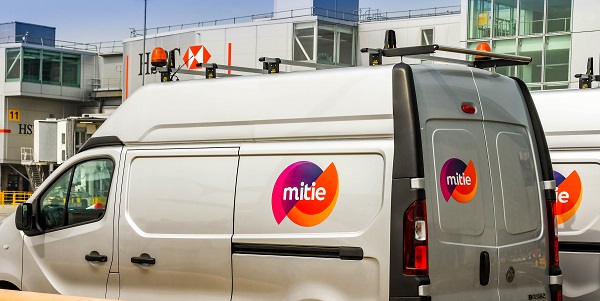Your vote counts: would you approve this CEO’s 23% pay rise?
23rd July 2021 09:05
by Graeme Evans from interactive investor
One FTSE 100 star stock received a bloody nose last week over a new pay policy for its boss. Will the same happen with this £5bn company? We have news on Vodafone too.

The perks of FTSE 100 status will be highlighted for a second week running when B&M European Value Retail (LSE:BME) seeks approval for a 23% pay rise for its boss.
The retailer's attempt to bring the remuneration of Simon Arora into line with other blue-chip companies comes after conglomerate Halma (LSE:HLMA) received a bloody nose from shareholders over its first big increase in pay and bonus awards since becoming a top-flight stock.
Halma's binding shareholder vote on its three-year remuneration policy yesterday saw 39.8% oppose a plan for a performance-related increase in the CEO's pay to £900,000 a year from 2022, alongside enhanced bonus and incentive opportunities.
The separate remuneration report containing an initial salary rise for chief executive Andrew Williams to £776,500 in the current financial year was approved with 93% support.
- 10 blue-chip shares for contrarian investors
- Make a difference and use your vote this AGM season
- Take control of your retirement planning with our award-winning, low-cost personal pension
As well as the B&M vote, next week could see a potential flashpoint at the AGM of outsourcing firm MITIE Group (LSE:MTO) after it introduced a one-off incentive scheme to ensure chief executive Phil Bentley delivers the benefits of the company's Interserve facilities management acquisition.
B&M European Value Retail (Thursday, 29 July)
Chief executive Simon Arora is set for a 23% pay rise as part of a remuneration overhaul to reflect the retailer's blue-chip status and “step change” in size, scale and complexity.
Arora's salary has been largely unchanged since the company's IPO in 2014, despite a total shareholder return of 167% compared to the FTSE All Share at 34% over the same period.
B&M wants to bring the CEO's rewards into line with other FTSE retailers and companies of a similar stock market size, meaning his basic salary will increase to £810,000. The maximum annual bonus opportunity will also be 200% of salary, up from 150%, but a similar hike to 250% for the long-term incentive plan was pulled after consultation with major shareholders.
Advisory group Institutional Shareholder Services (ISS) remains uncomfortable with the scale of the new package, noting that the company only secured promotion to the FTSE 100 index in September 2020 and has yet to establish itself as a blue-chip stock.
ISS said: “A phased approach would have been preferred over a one-off increase.”
It has recommended shareholders do not support the company in a binding vote on the three-year remuneration policy and also oppose the advisory vote on the annual remuneration report. Counterparts at Glass Lewis have stated their support for both proposals as their experts believe the new salary is reasonable relative to the company's peers.
Arora's total remuneration for 2020/21 jumped to £3.6 million as a result of his decision in 2018 to participate in the company's three-year incentive plan for the first time. His annual bonus came to £972,770 as Arora met almost all his performance targets for the year.
- Top 20 most-bought UK shares in Q2 2021
- Shares for the future: everything you need to know
- Subscribe to the ii YouTube channel and catch all our latest interviews and video content
Like-for-like sales in the UK grew 23.8% in a period when the company's stores were able to continue trading throughout Covid-19 lockdowns. B&M has repaid government support worth £3.7 million and also waived business rates relief worth £80 million.
B&M's remuneration committee chair Tiffany Hall praised the response of Arora to the pandemic, including by ensuring stores met elevated demand for essential goods.
On the new remuneration policy, she said: “The CEO has played a pivotal role in driving the growth of the business to date and it is important he remains motivated in the future to continue driving superior performance for the business by a fair remuneration package.”
Arora is a major shareholder of B&M, with the 11% stake jointly held with brothers Bobby and Robin now worth £615 million after they bought the chain through SSA Investments in 2004.
Mitie (Tuesday, 27 July)

A one-off incentive scheme that could pay chief executive Phil Bentley as much as £5.7 million has caused controversy ahead of the outsourcing firm's AGM.
The new three-year performance plan is designed to incentivise senior leadership to deliver on the benefits of last November's Interserve acquisition, a deal which created the UK's largest facilities management company.
Bentley will be granted core awards worth 160% of his £900,000 base salary subject to “stretching” performance measures. But he will have an opportunity to earn up to four times the core award for “truly exceptional performance”.
Mitie's remuneration chair Jennifer Duvalier said the plan is the right one for supporting a key stage in the company's transformation. However, voting advisory group Institutional Shareholder Services (ISS) is less sure and has recommended shareholders vote against the scheme on the grounds the rewards are excessive and without compelling rationale.
Counterparts at Glass Lewis added that the total package, including 200% of base salary through the regular long-term incentive plan, far exceeded what's on offer for CEOs at the company's FTSE 250-listed peers.
Bentley, who is the former boss of British Gas, has been on the same £900,000 salary since joining the company from Cable & Wireless Communications in 2016. He's also waived annual bonus payments in respect of the 2017, 2018 and 2020 financial years worth £1.6 million.
His bonus for the past financial year came to £1.1 million after the committee determined Bentley should receive 78.6% of the maximum opportunity in recognition for steering the company through unprecedented levels of uncertainty.
- UK stocks are a bargain after record slump in company revenue
- Top 20 most-bought UK shares in Q2 2021
- Check out our award-winning stocks and shares ISA
Revenues for the year were £2.6 billion when including the impact of Interserve and strong cash management resulted in a closing net debt of £86.7 million, which was better than expectations.
Duvalier said: “As a result of the exceptional efforts of the management team Mitie has entered the 2022 financial year in a robust position with a major opportunity to deliver significant benefits for colleagues, shareholders and other stakeholders.”
Bentley's total remuneration for 2021 came to £2.7 million when including £622,086 from a long-term incentive scheme and factoring in a voluntary 30% pay reduction to reflect Covid-19.
ISS has also recommended shareholders vote against the 2021 remuneration report, due to bonus outcomes appearing excessive in light of the company's performance.
Vodafone (Tuesday 27 July)
Vodafone (LSE:VOD) chief executive Nick Read's remuneration for 2020/21 was broadly unchanged at £3.6 million after performance metrics used for setting his bonus were adjusted in response to Covid-19.
Due to the difficulty of setting a service revenue target, Vodafone used adjusted free cash flow and adjusted earnings for assessing the financial side of his performance, while the strategic third of the award was judged on customer appreciation metrics.
Performance on all three measures was above the mid-point of the target range and resulted in an overall bonus pay-out of 62% of the maximum and equating to a bonus of £1.3 million. A longer-term incentive scheme also paid £1.1 million.
Read's base salary was £1.05 million and will remain at this level in the current financial year.
Institutional Shareholder Services said there were no material concerns in terms of the alignment between pay and performance. “The overall variable payments during the year do not appear excessive compared to other FTSE 100 constituents.”
Dr Martens (Thursday, 29 July)

The potential for the footwear brand's chief executive to receive variable pay equivalent to five times salary is revealed in the company's maiden annual report.
Voting advisory group Institutional Shareholder Services (ISS) described the pay package as competitive for a FTSE 250 company, though it adds that the ratio is based on a salary that is positioned reasonably on £700,000 a year for boss Kenny Wilson.
The new remuneration policy reveals a maximum opportunity of 300% of salary under the long-term incentive plan, although this can reach 400% in exceptional circumstances. The chief executive's maximum annual bonus is 200% of salary.
Dr Martens (LSE:DOCS) said the new policy has been designed with sustainable growth in mind, including through payment in shares which must be held long term. ISS and Glass Lewis have recommended shareholders support the binding vote on remuneration policy.
ISS said: “The structural elements of the proposed policy are generally in line with UK good practice, including strong bonus deferral and shareholding requirements.”
These articles are provided for information purposes only. Occasionally, an opinion about whether to buy or sell a specific investment may be provided by third parties. The content is not intended to be a personal recommendation to buy or sell any financial instrument or product, or to adopt any investment strategy as it is not provided based on an assessment of your investing knowledge and experience, your financial situation or your investment objectives. The value of your investments, and the income derived from them, may go down as well as up. You may not get back all the money that you invest. The investments referred to in this article may not be suitable for all investors, and if in doubt, an investor should seek advice from a qualified investment adviser.
Full performance can be found on the company or index summary page on the interactive investor website. Simply click on the company's or index name highlighted in the article.